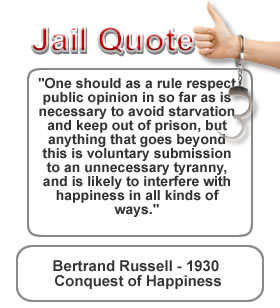
How Bail Bonds Work
When you or someone you know is arrested, your number one priority is getting out of jail as quickly as possible. Once the bail amount is set, it can be posted to the jail or courthouse with cashier’s check or cash. With bail amounts in Delaware reaching into the tens and even hundreds of thousands of dollars and beyond, most people simply cannot afford to post the full amount of bail. This is when the help of a licensed expert bail bondsman is most beneficial.
Why Post Bail?
There are important things to be done before a court case which are difficult to handle from inside a jail cell, speaking to a lawyer is likely at the top of that list. Additionally, these days no one can afford to loose a job. The bail system was created to help people who have been arrested so that they do not have to remain incarcerated while waiting for their court hearing to begin. Bail is especially important to the presumption of innocence. Bail is essentially a promise made by the defendant to the court, that the defendant will appear at all scheduled court appearances.
How Bail Is Set
After the defendant has been booked into the jail system in Delaware, bail is set based on the county’s bail schedule. The bail schedule lists all Delaware penal codes and includes an amount of bail for each. Several factors will be taken into account when a bail is set, including the severity and nature of the charges, the defendant’s criminal history, and potential flight risk. In some instances, the defendant will be eligible for release on their own recognizance (“OR”). For more severe charges, though, it is a possibility that the defendant be held without bail.
Cost & Paying For Bail
Many people are unable to afford the full amount of bail, so they will seek the services of a bail bondsman. A bail bondsman must be licensed in their state in order to help clients. Delaware’s Department of Insurance determines the cost of a bail bond. For most states, this amount is equal to 10 percent of the defendant’s bail amount. For example, if bail is $20,000, then you will pay a bondsman $2,000 for their services.
Many bail bondsman will accept payment with cash or credit card. Some will also take property as collateral if no money is available for the bond. You will even find some bondsmen who are willing to work out a payment plan with clients to help make it easier to afford the cost of a bail bond. Once the client has signed the bail bond agreement and paid the required fee, the bondsman will go to the jail and post bail on the defendant’s behalf so that they can be released.
Responsibilities
When you enter into a bail bond agreement, you are assuring the court and the bondsman that the defendant will show up for court hearings. If the defendant intentionally misses a court date, the signer of the agreement, known as the “indemnitor”, will be held financially responsible. This means that you will have to repay the entire amount of bail, as well as any additional costs incurred by the agent, including the cost to recover the defendant and bring them back to court. That said, such situations where the defendant simply refuses to go to court are extrememely rare. Most people simply go to court and outside of the basic bail bond fee, no other costs are incurred.
A bail bond is often the most affordable way for a person to get themselves out of jail and back home. If you need a bail bond, be aware that you have many options. You should seek the advice of an expert bail bondsman before making any commitments.












